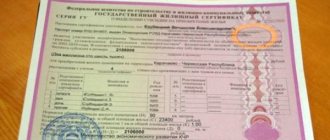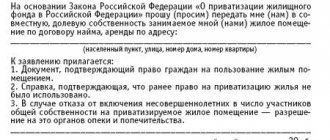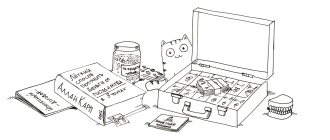Home/Benefits and subsidies for housing and communal services/For low-income families
Every family considered low-income in our country has the right to count on receiving a whole list of benefits, subsidies, and concessions. Ignorance of the current norms of the law often leads to the fact that such sections of society are ready to give everything they can just to pay off debts for utility services and not run into fines. What privileges are extended to low-income families in the field of housing and communal services, and what to do to obtain them - we will consider in the article.
Normative base
The status of a low-income family is currently regulated by several legislative norms simultaneously. The state government apparatus is usually involved in determining the categories of persons who need to receive government assistance in paying for housing and communal services, and the following types of documentation serve as the basis for providing benefits and subsidies:
- Civil Code of the Russian Federation;
- Federal Law No. 44, adopted on April 5, 2003;
- Government Order No. 512 dated August 20, 2003;
- Federal legislation “On social protection of disabled people in Russia” dated November 24, 1995 No. 181-FZ;
- Federal Law No. 5 of January 12, 1995 “On Veterans”;
- RF LC of December 29, 2004 No. 188-FZ (Articles 159, 160);
- Government Decree No. 761.
Attention
Each subject has its own rules and regulations, which can make adjustments to the main indicators and coefficients recognized at the federal level.
What payments are due to a disabled child?
The child is entitled to a disability pension (Article 11 of the Law “On State Pension Provision” dated December 15, 2001 No. 166-FZ). In 2019, its size was 12,082.6 rubles. To receive a pension, you must submit an application to the pension fund. For parents who are unable to work, an allowance is assigned - 5,500 rubles (Decree of the President of Russia No. 175 of February 26, 2013).
Also, for a disabled child, a monthly allowance is provided until adulthood for the purchase of goods for children, baby food and special dairy products. The benefit is assigned at the request of one of the parents, regardless of family income. The application is sent to the social services department. protection. The full period of disability is accrued from the first day, but no later than six months. The benefit amount in 2021 is 6850 rubles.
Which family is considered low-income?
Low-income families can only be classified as those whose income per person is less than the minimum subsistence level established in Federal Law No. 134 of October 24, 1997. In the Russian Federation, this amount can be variable, depending on the region. In addition to this, low-income families are usually classified as social units that:
- dependent minors;
- people with disabilities are in their care;
- more than three children were born.
These norms are prescribed in Art. 49 Housing Code of the Russian Federation. It is categorically incorrect to classify as low-income families those in which members:
- are able to work, but do not go to work due to alcoholism or drug addiction;
- have a high level of income (i.e., one that exceeds the subsistence level);
- do not have official proof of relationship or do not live under the same roof.
These norms are prescribed in Article 13 of Federal Law No. 44 of 04/05/2003. Only persons living together fall under the status in question. They are the ones who can count on benefits for housing and communal services. Descriptions of the categories of individuals and families who have the right to count on benefits and subsidies for housing and communal services are presented in Art. 159 Housing Code of the Russian Federation.
What should I do to get benefits for a disabled child?
Disability is assigned based on the results of a medical and social examination (MSE). A referral for an examination is given by a doctor at a clinic or psychiatric clinic.
ITU admits children to the commission by appointment on a first-come, first-served basis. The queue can be from 1 month. You will have to come to the office in person. You can only find out the appointment time by phone. If you need to re-pass the commission to extend your disability, do not wait for the end of the disability period, but sign up a couple of months in advance (but no more), which will take the specialists to pass.
As a rule, before the commission you need:
- undergo a series of specialists (all individually, check details with the doctor who gives the referral);
- take blood and urine tests;
- An ECG may be required.
After passing through all the doctors, the pediatrician writes an epicrisis. The epicrisis is a certificate that contains all the information about past and current diseases, vaccinations, etc. Be careful, the certificate must be certified by the signature and seal of the pediatrician and the head of the department.
Advice! When undergoing specialist examinations, ask the doctor to indicate treatment recommendations in the conclusion. For example, after consulting an orthopedist, flat feet are discovered; treatment requires a course of massage and special shoes. These recommendations during the ITU will be included in the individual rehabilitation program (IRP). Based on such recommendations, the necessary things or services will be provided to you free of charge.
Documents for ITU
To register for the commission, a number of documents are required:
- direction - Form No. 080/у-06;
- children's card from the clinic;
- certificate-epicrisis;
- characteristics from the place of study (upon request);
- birth certificate;
- Form No. 9 - about the place of registration of the child;
- temporary registration (for those who want to pass a commission at their actual place of residence);
- passport of mother or father.
Re-examination is required for most children once a year. Depending on the diagnosis, perhaps once every 2 years or once every 4 years. An exception is a number of diseases when re-examination is not required (according to Decree of the Government of the Russian Federation No. 95 “On the procedure and conditions for recognizing a person as disabled”).
Who establishes the list of subsidies and benefits for housing and communal services for low-income families?
Attention
The list of subsidies and preferential conditions for low-income families in housing and communal services is established by regional authorities in accordance with clause 3 of Art. 13 Housing Code of the Russian Federation, as well as municipal government apparatus. To obtain information in this regard, you should contact your local government authorities. Issues related to the provision of privileges are dealt with by social protection authorities. However, in the case of services in the housing and communal services sector, you should contact the housing office at your place of residence for information.
Requirements for receiving
The requirements for receiving subsidies and benefits for housing and communal services for low-income families are specified in the “General Provisions” of Government Resolution No. 761 of December 14, 2005. The state is interested in providing partial compensation in the form of benefits, but there are several reservations for this:
- return is made to the owner of the home;
- can be made to the tenant subject to a well-executed rental agreement;
- persons living in an apartment on the basis of a social tenancy agreement;
- members of the cooperative of residential premises owners.
IMPORTANT
The main requirement for submitting an application for a subsidy is to provide a document stating that there are no debts to pay for housing and communal services. If they exist, and there is no possibility of timely repayment, a restructuring agreement is required. The payment schedule is submitted to the SZN structures. There is a possibility that the subsidy will be canceled if, from the moment it was acquired by a low-income family, housing and communal services debt has been generated for more than 2 months.
The state subsidizes only the living space, which is allocated to family members in accordance with local regulations (from 13 to 18 sq. m). If we are talking about an area exceeding this norm, payment is made independently in the size indicator of 100%.
For your information
Based on the region/territory in which a low-income group with many children lives, the discount on housing and communal services cannot be less than the norm established by federal law (Presidential Decree No. 431), i.e. 30%.
Types of disability benefits
People who are unable to work due to disability are provided with the following types of financial support:
- The social pension is intended for those who have not accumulated insurance coverage. Can be received by minors, pensioners, citizens who have lost their breadwinner.
- A labor pension is assigned as compensation for the lost opportunity to receive income. To receive this type of payment, you must have a minimum length of service – at least 1 day.
- The state pension is accrued depending on the length of service to cosmonauts, military personnel, victims of man-made accidents, participants of the Second World War, as well as survivors of the blockade.
Loan secured by PTS CashDrive, Person. No. 18-034-75-009039
from 0.05%
rate per day
up to 1 million
90 – 2,555 days
Take out a loan
List of subsidies and benefits for paying for housing and communal services for low-income families
Benefits and subsidies can be used by a low-income family only if it is forced to spend more than 22% of its total income on utility bills (Federal Law No. 178 “On State Social Assistance” dated July 17, 1999). Settlement measures are carried out individually in each region. The provision of benefits to low-income citizens and families in the field of payment for housing and communal services occurs in accordance with the changes that are observed in the Housing Code of the Russian Federation:
- the legislative side decided to reduce the list of required papers, since now the necessary information can be taken and obtained from special electronic databases;
- as of 2021, a column dedicated to capital has appeared in payment documents. repairs, in which the amount for this service is constantly subject to increase (the amount of subsidies for low-income families increases in proportion to it);
- During the provision of heating and in the summer, the payment for heating systems varies significantly, and the size of the subsidies provided at the regional level changes similarly.
The amount of benefits and subsidies provided by regions for housing and communal services to low-income families depends simultaneously on several factors and features:
- apartment area;
- cost of utilities in the region;
- share of costs from total family earnings.
In most regions, the following areas of preferential conditions for low-income families have been established:
- if there is a disabled child, a 50% discount on utility bills is provided; in a number of regions of Russia, it is practiced to provide subsidies for the purchase of firewood and coal in the absence of central heating (Federal Law No. 181 of November 24, 1995);
- pensioners, when submitting a pension certificate to the SZN authorities, have the right to expect to receive a 50% or even 100% discount on payment for housing and communal services (Government Decree No. 761 and No. 541);
- large families can receive subsidies from 30%, this depends on the region, since each of them has individual criteria for large families (Presidential Decree No. 431);
- veterans should also count on the provision of subsidies, the average amount in the country is 50% (Federal Law No. 5 of December 16, 1994).
Attention
In any situation, it is necessary to obtain the status of a low-income family by providing appropriate evidence.
Amount of benefits for a disabled child
When the disabled child’s status is confirmed, we recommend that you do not delay in submitting documents to receive benefits. Here is a sample list of them:
- Health care. Free rehabilitation and equipment with everything necessary, according to list No. 2347-r dated December 30, 2005. This list includes such important and expensive needs as a wheelchair, a hearing aid, and free medications.
- Transport benefits. There is no charge for using public transport, also for the person accompanying the child. Fifty percent discount on air tickets, Russian Railways tickets. There is no charge for tickets when traveling to the place of treatment (no more than once a year), or for an accompanying person.
- Housing. Priority provision of housing for orphans upon reaching adulthood, if the person can care for himself independently, according to the individual program of the disabled person.
- Education. Non-competitive admission to universities, technical schools, etc.
- Spa treatment. Camps for children from seven to fifteen years old. Sanatorium for children from four to fourteen years old. Recreation centers for low-income families. Vouchers are provided free of charge or with a fifty percent discount.
Step-by-step registration instructions
First of all, you need to visit your local social services office. protection of the population. This will allow you to receive detailed advice regarding all benefits and benefits provided to low-income families. To do this, the required package of documents is collected, and then an application is made to one of the following authorities:
- USZN at the place of registration;
- MFC (multifunctional center);
- living center subsidies (for residents of the capital).
Submission of an application can start from the same month from which the family received its official recognition as poor. Here is what the general scheme for receiving subsidies and benefits for housing and communal services looks like:
- Obtaining the status of a low-income unit of society, which requires confirmation of the income of all family members.
- Obtaining from the district Administration the relevant paper on the special situation.
- Preparation of documentation, a list of which can be obtained on the territory of the USZN in the region.
- Writing an application and attaching a list of documents to it.
- Visit to housing office.
- Waiting for a decision of approval or refusal.
How to get benefits for a disabled child
You should start with a pediatrician or a specialist who is registered with the baby. The doctor will refer you for consultation with specialists, which is necessary in your case, and write out directions for tests and other examinations. Based on the results of the examination, he will prepare an epicrisis certificate necessary for the medical commission.
Whether or not to assign the status of a disabled child is within the competence of the ITU special commission. In case of a positive decision, a “pink” certificate is issued, which is the basis for receiving benefits. With a certificate in hand, you can contact the following authorities - the Pension Fund, social services. protection or MFC to receive benefits.
Required documents
To receive subsidies for utilities, low-income families need to provide the social security department with a set of documents:
- passport of the Russian Federation;
- marriage certificate;
- certificate in form 9 about family composition;
- confirmation of income of all persons registered in the apartment;
- in the absence of work - proof from the employment authorities;
- reference materials from the BTI on the size of living space;
- bank statements;
- documents confirming the absence of debt obligations;
- receipts for the latest payments for housing and communal services.
Registration period
After the family manages to confirm its low-income status, as well as present a set of necessary documents and submit an application form, the department of social security authorities will begin to consider this issue. The maximum time allowed is 10 days, after which a justified refusal will be sent, or a message confirming the satisfaction of the request will be sent. Compensation payments will be credited to the applicant’s account within the same monthly period in which the application to the social security authorities regarding housing and communal services benefits took place.
How to calculate housing and communal services subsidies for a low-income family?
More detailed information on the procedures for settlement actions is presented in government decree No. 761 dated December 14, 2005 (part 4). Let's look at the nuances of settlement measures using a practical example: in a low-income family there are 4 people - two spouses and two children. The parents' total earnings are 50,150 rubles; children do not work due to their minorities. The cost of living for the entire family in this case will be:
PM = 2 * 17561 (for able-bodied citizens) + 2 * 13259 (for children) = 61640 rub.
Since the family’s income is less than the specified monetary value, it is entitled to subsidies, i.e. it is considered low-income. The correction factor in this formula will have the following meaning:
K = 50150: 61640 = 0.8.
It turns out that the share of costs, calculated as 0.8 * 10%, is 8%. The living space standard, found using the formula 4*18 sq. m, is 72 square. It turns out that the maximum allowable payment is calculated using the formula:
MDP = 50150 * 8%: 100% = 4012 rub.
The amount of the subsidy for housing and communal services is calculated as payments according to the standard minus the maximum payment and amounts to 5686 rubles. 40 kopecks
One-time disability benefit
A one-time cash payment to disabled people is financial support from the state, which can be expressed both in cash and in kind. A person has the right to choose the form of a one-time benefit.
What is included in EDV in kind:
- city telephone service;
- travel to the sanatorium once a year;
- social services;
- Dental prosthetics once every 5 years.
In material equivalent, EDV is paid in an amount depending on the disability group:
- for the first group – 4,087.36 rubles;
- for the second group – 2,919.02 rubles;
- disabled person of group 3 – 2,336.70 rubles;
- minor citizens – 2,919 rubles. (the amount does not depend on the group).
The recipient has the right to refuse assistance in kind in full, or from any specific type of service, replacing it with cash support.
Benefits and subsidies for housing and communal services for low-income families in Moscow
Every low-income family registered and living in Moscow can count on government assistance to pay for utilities and housing services. For the Russian capital, the standard indicator for utility bills per 1 sq. m of area is 191.3 rubles. The standard living space for single people is 33 square meters. m, for families of two people – 42 sq. m, and for social units of 3 or more people – 18 sq. m for each. In Moscow, as in most other regions, citizens can count on a 50% discount in payment for utility bills.
Refusal to provide
Families that do not meet the status of low-income people may be denied subsidies for housing and communal services, i.e. if they do not have:
- pensioners;
- three or more children;
- orphans;
- living managers committees;
- honorary donors;
- prisoners of besieged Leningrad;
- prisoners of concentration camps;
- disabled people and WWII veterans.
Absolutely any category of applicants may lose their right to benefits for the following violations:
- providing false information;
- lack of notification of social security authorities about changes;
- bringing an incomplete package of documents;
- the presence of debt for CG for two months in a row.
Attention
If you are denied benefits and subsidies for housing and communal services, you must prove your status as a low-income family and collect the package of papers again.
Answers to frequently asked questions
Below we provide answers to the most popular questions.
Can I apply for benefits for caring for a disabled child if I myself am disabled?
The rules for assigning benefits for caring for disabled children are contained in Decree No. 175 of the President of the Russian Federation “On monthly payments to persons caring for disabled children.” The recipient of payments must satisfy a number of requirements:
- be able to work;
- not officially work;
- not be registered with the Employment Center;
- not receive a pension.
If you have a disability, it will not be possible to arrange care for a disabled child. It is best to give permission for these actions to a person (relative or friend) who meets the above requirements.
Design nuances
- The amounts and procedures for providing benefits are regulated at the regional level, so there may be variation in them throughout the country.
- Failure to notify special bodies and services about changes is fraught with liability, as is giving false information.
- The period for providing subsidies is six months. After they have passed, you need to re-apply and prove your status.
- Calculation of subsidies for each region is carried out according to an identical principle. It can be carried out using formulas or a classic calculator.
Comments Showing 0 of 0







